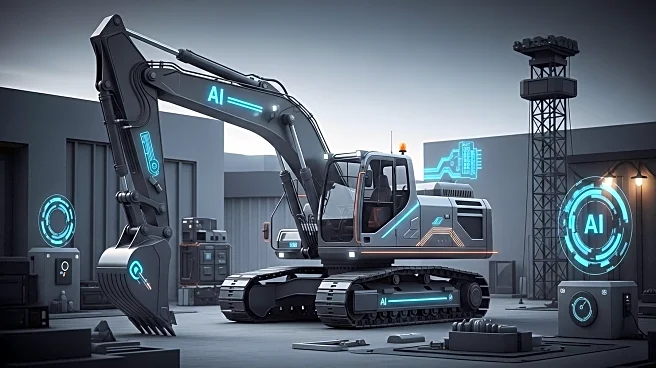What's Happening?
The excavator industry is undergoing a transformation in 2025, with new models incorporating advanced sensors, AI, and automation. These upgrades allow for precision guidance, predictive maintenance, and remote or autonomous operation. Manufacturers like Develon, Hitachi, and Caterpillar are leading this shift, offering excavators that can operate in semi-autonomous or fully remote modes. The integration of technologies such as LiDAR, radar, and AI-driven controls is redefining productivity and safety in construction, making modern excavators smarter and more adaptable.
Why It's Important?
The advancements in excavator technology represent a significant leap towards more efficient and sustainable construction practices. By incorporating AI and automation, these machines can reduce fuel consumption, enhance safety, and improve operational efficiency. This shift is crucial for contractors who must now consider technology integration as a key factor in equipment investment decisions. The move towards greener and smarter construction equipment aligns with global sustainability goals and regulatory requirements, potentially leading to increased adoption of electric and hybrid models in the industry.
What's Next?
As the construction industry continues to embrace technology, the future of excavators will likely involve further integration with site-wide autonomous systems. The development of digital twin technology and swarm automation could revolutionize jobsite management, allowing for more coordinated and efficient operations. Manufacturers may also explore new materials and design innovations to enhance the performance and sustainability of excavators. The ongoing evolution of these machines will play a critical role in shaping the future of construction and infrastructure development.











